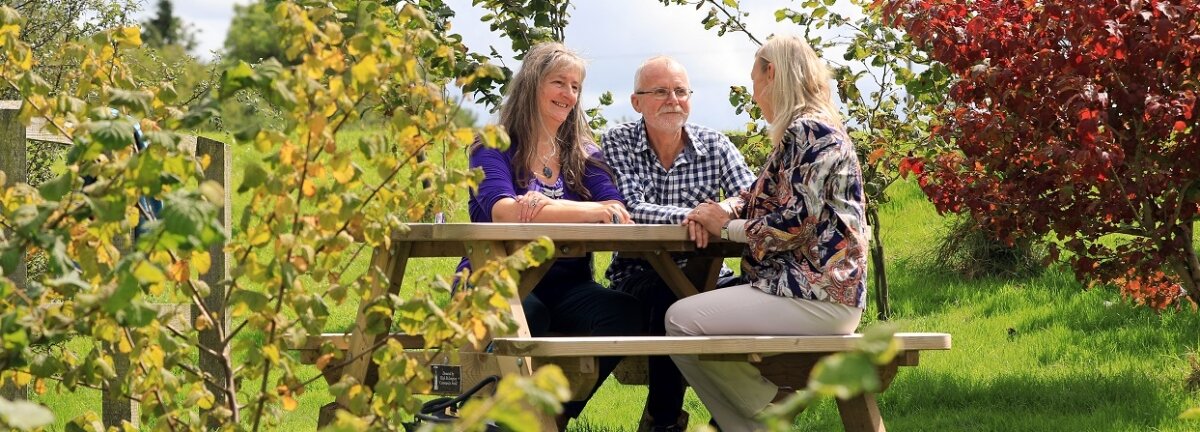A new approach to Transform Ageing: older people lead project to improve later years

By the time the NHS celebrates its 100th birthday in 2048, there will be more than 100,000 centenarians in the UK. This age shift is both global and personal. We are living longer and many of us are living better too. But too often, ageing seems to be more a source of consternation than celebration.
“For more than half a century now, we have treated the trials of sickness, ageing and mortality as medical concerns. It’s been an experiment in social engineering, putting our fates in the hands of people more valued for their technical prowess than for their understanding of human needs. The experiment has failed,” says surgeon Atul Gawande in his book Being Mortal.
The way we respond to the human needs of an ageing society needs a new approach. We need to look beyond the medical to understand the ecology of ageing, of the psychosocial, economic and environmental.
For the last six months, Design Council, UnLtd, the South West Academic Health Science Network and the Centre for Ageing Better have collaborated to do just that in the south-west of England, using a £3.65m grant from the Big Lottery Fund.
The programme, Transform Ageing, brings together older people, community groups, commissioners and social entrepreneurs to tackle some of the biggest challenges facing us as we age. The programme aims to break down some of the barriers that obstruct innovation and solutions.
Launched in April, Transform Ageing is led by older people. In Cornwall, North Devon, Torbay and Somerset, the Design Council facilitated sessions with local people to identify, explore and prioritise later life challenges.
I joined one of the workshops in Torrington, Devon, where groups of older people, social entrepreneurs, charities and staff from the NHS, local government and other public services were introduced to design thinking and tools, and were tasked with developing and undertaking their own community research plan. I was struck by the strength and value of fresh collaboration across groups who would not have come together otherwise.
Transform Ageing is not just fostering social ventures – it is stimulating interest in the NHS and local government
In the final round of workshops, participants shared their research, identified common themes and finalised their challenge presentations. In Somerton, Somerset, I was struck by how committed participants were to seeing their work deliver results. Some of the older participants expressed interest in setting up their own social enterprises to do just that.
This community-led research has generated a range of insights, and the design techniques that were used created a positive and forward-looking dialogue. The topics that emerged include managing major life changes such as retirement and bereavement, supporting people in later life to reconnect or get involved in the community, ensuring that days out are not overshadowed by worries about getting home, helping to bridge the knowledge gap – and how so many of these challenges can contribute to feeling lonely. It is a daunting list, but the design-led approach has generated new thinking and opportunities for social entrepreneurs to innovate.
After drawing all this passion, insight and intelligence together, the team has produced a series of design briefs that will inform the next stage of the programme: finding and funding social entrepreneurs with the drive and potential to make a difference.
This week, UnLtd has issued the first of four call outs offering awards between £5,000 and £15,000. The aim is to start developing a pipeline of social entrepreneurs who can respond to the design briefs and the wealth of learning from the workshops and community research.
In addition to these early stage awards, in the first round – focused on growth and scalability – successful applicants will receive an upfront award of £25,000 and will be able to access further funding leveraged against external investment.
The funds available for the awards are limited and the selection process will be rigorous. Successful social ventures will be given consultancy support and training, including design thinking and peer-to-peer support.
Transform Ageing is not just fostering social ventures – it is stimulating interest in the NHS and local government across the south-west of England in design-led approaches to tackling some of the biggest challenges faced by the older population.
It is still early days, but the workshops and community research have catalysed the local community and voluntary sector. It has helped to develop and strengthen the skills, abilities and resources they need to adapt and thrive in a fast-changing world.
We tend to see ageing through a rear-view mirror, looking back on our own experience of grandparents and parents. But when we talk about ageing and how we adapt to living in an older society, we need a design-informed approach that is tuned in to what people aspire to have in later life.
- Paul Burstow is chair of the Transform Ageing national advisory panel
Subscribe to our newsletter
Want to keep up with the latest from the Design Council?
